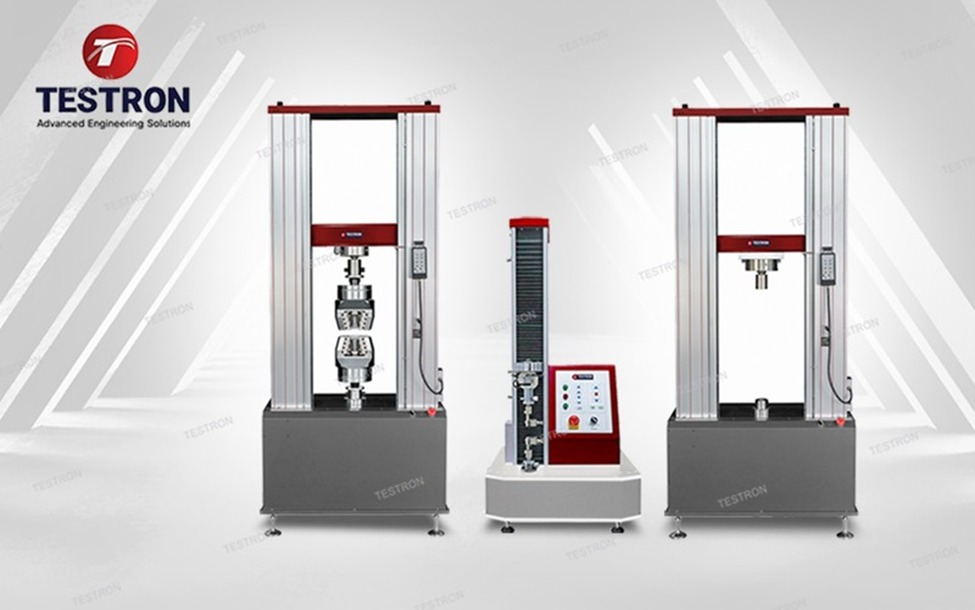Product durability and reliability are now critical in today’s competitive manufacturing era. Across most industries, tensile strength testers are utilized to measure the material’s mechanical characteristics, checking it against standards for quality. With developments in materials, legal stipulations, and the precision required for production, increasing demand places a considerable emphasis on tensile strength testing machines.
This article discusses the growing significance of tensile strength testers, their applications in industries, and how investing in good-quality universal tensile strength testers can assist manufacturers in upholding product integrity.
Why Tensile Strength Testing is Important
Tensile testing specifies how materials respond to stretching forces, essential for quality, performance, and compliance. Industries such as automotive, aerospace, construction, and plastics production rely on tensile strength testing machines to improve safety and durability.
Most Important Advantages of Utilizing a Tensile Strength Tester
- Quality Assurance: Guarantees materials comply with specified strength requirements.
- Regulatory Compliance: Complies with international standards such as ASTM, ISO, and DIN.
- Product Development: Facilitates the development of stress-resistant products.
- Cost Efficiency: Avoids material failures that result in recalls or downtime.
Tensile Strength: What Manufacturers Need to Know
Tensile strength is one of the most essential material properties in manufacturing. It quantifies the ability of a material to resist breaking under tension, allowing manufacturers to establish whether a product can endure stress conditions in actual use.
Maintaining materials to the tensile strength standards is necessary for automotive, aerospace, construction, and plastic industries to prevent product failure, minimise liability, and keep them compliant with international standards such as ASTM and ISO.
There are three primary types of tensile strength:
- Yield Strength – The stress at which a material will start to deform permanently.
- Ultimate Tensile Strength (UTS) – The maximum stress a material can endure before fracture.
- Fracture Strength – The intensity at which the material fails.
Manufacturing companies employ tensile strength testers to measure such factors to confirm that raw materials and finished products are within performance expectations. Purchasing a universal tensile strength tester will ensure consistent quality and avoid the expense of failure.
Industry-Specific Uses of Tensile Strength Testing Machines
Tensile strength testing is not confined to one industry—it is a critical application in various manufacturing industries:
- Automotive & Aerospace: Tensile testing confirms that metal and composite materials used in automobile bodies, aircraft wings, and safety devices can withstand maximum stress and impact.
- Construction & Infrastructure: Steel, concrete, and reinforcement materials are tested to ensure their strength before use in bridges, skyscrapers, and highways.
- Plastics & Packaging: Polymer materials, plastic bottles, and polymer film packaging are tensile tested to determine flexibility and durability.
- Textiles & Fabrics: Industrial fabrics, clothing, and seat belts are tensile tested to determine stretch, tear resistance, and durability.
- Medical & Biotech: Surgical sutures, prosthetic devices, and drug packaging need tensile testing to guarantee safety and performance.
Using high-tech tensile strength testing machinery, manufacturers in various industries make their products more reliable, avoid defects, and meet international standards.
Trends Influencing the Increasing Demand for Tensile Strength Testing Machines
- Strict Quality Standards – Companies must adhere to ISO, ASTM, and other regulatory standards, thus creating a greater demand for tensile strength checking machines.
- Material Science Innovation – Composites need the latest tensile strength meters to determine longevity.
- Greater Manufacturing Complexity – High-performance requirements call for precise tensile strength testing equipment.
- Cost-Effective Testing Solutions – As the cost of advanced tensile strength tester prices decreases, even small and medium-sized manufacturers are investing in testing solutions.
How to Select the Appropriate Tensile Strength Testing Machine
Selecting the most appropriate universal tensile strength tester will rely on the material type, needed test parameters, and your budget. A comparison is here to assist your selection:
| Feature | Benchtop Tensile Testers | Universal Tensile Strength Testers |
| Ideal for | Small labs, lightweight materials | Heavy-duty applications, metals, composites |
| Tensile strength testing machine price | Affordable, suitable for SMEs | Higher investment, industrial-grade |
| Load Capacity | Up to 50kN | 50kN to 2000kN |
| Applications | Plastics, textiles, packaging | Metals, aerospace, construction |
For professionals in the industry seeking the most reliable tensile strength testing machine, Testron has a variety of high-end solutions.
Tensile Strength Testing Equipment by Testron
Testron offers high-performance tensile testing machines that guarantee accuracy and adherence to international standards. Some of our best-selling models are:
- TT-EU0300 300KN Servo Electronic Universal Material Testing Machine
- TT-EU0200 200KN Servo Electronic Universal Material Testing Machine
- TT-EU0100 100KN Servo Electronic Universal Material Testing Machine
- TT-EU0050 50KN Servo Electronic Universal Material Test Machine
- TT-EU0030 30KN Servo Electronic Universal Material Test Machine
Are you curious about the top tensile strength tester for your sector? Schedule a free consultation today!
FAQs
Q1: What is a tensile strength tester used for?
To maintain quality control, a tensile strength tester tests the material’s resistance to breaking under tension.
Q2: What influences the cost of a tensile strength testing machine?
Load capacity, automation level, and adherence to international standards influence the cost.
Q3: Which sectors employ tensile strength testing equipment?
Automotive, aerospace, construction, and plastics industries commonly employ these machines to ensure quality.
Q4: What is the best tensile strength testing machine I can select?
Look at your material type, needed force capacity, and compliance requirements before buying.
The Future of Tensile Strength Testing
The need for tensile strength testers persists as industries seek improved product quality and regulation. Whether you require a low-capacity tensile strength tester for a laboratory or a universal tensile strength tester with high capacity for industrial use, investing in Testron’s high-quality tensile strength test equipment guarantees accuracy and dependability.
Need the best tensile strength tester for your company? Get in touch with Testron today!



































